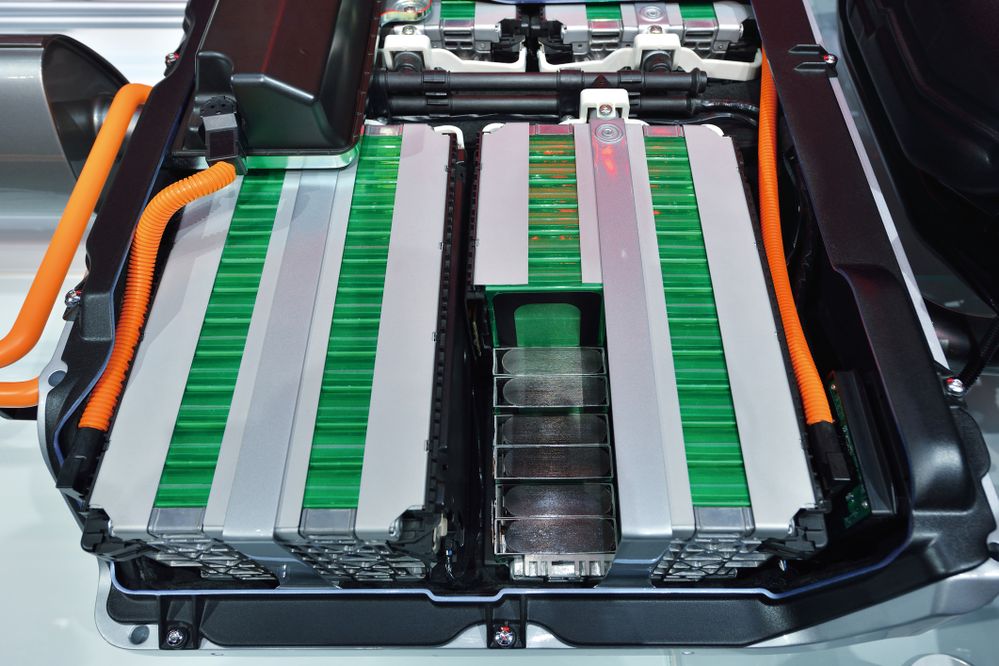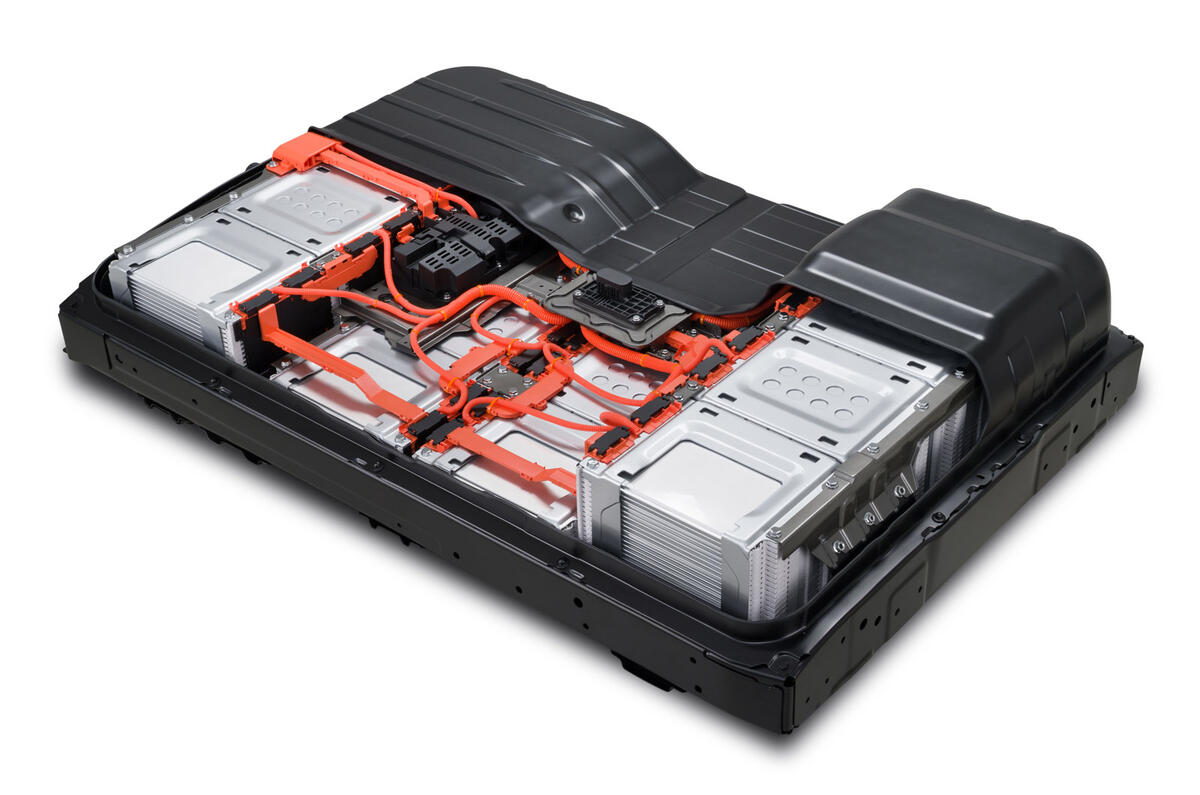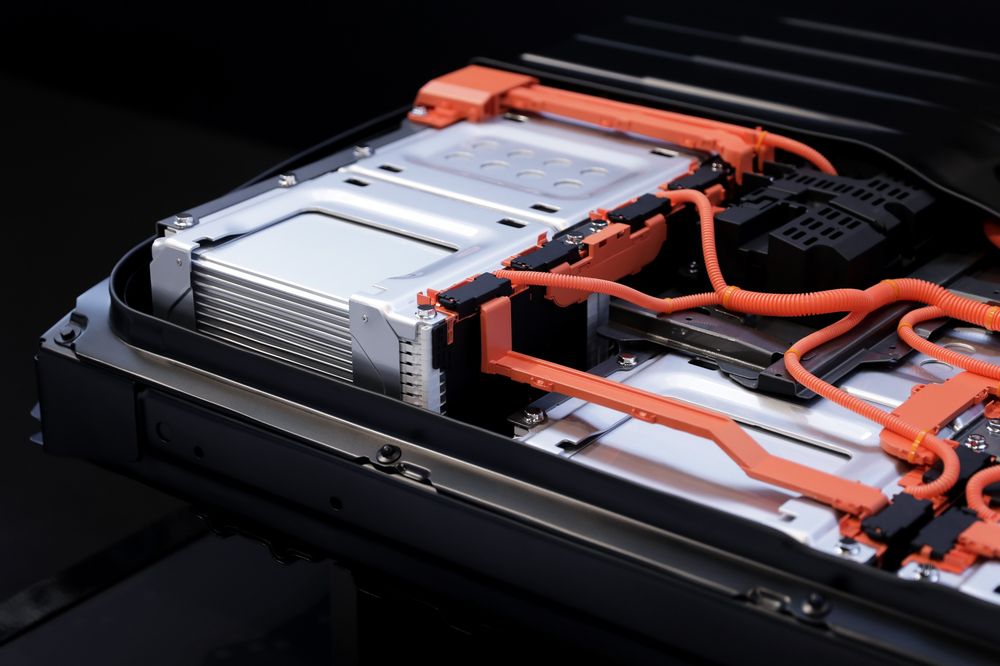Electric cars have been around for some time now and are rapidly gaining popularity in the automotive industry. One of the most important components of an electric car is the battery that powers it. In this post, we will take a closer look at the world of electric car batteries, how they work, and what makes them different from traditional car batteries. Let's start with the basics - what is an electric car battery? Electric car batteries are rechargeable batteries that power electric motors. They are the primary source of energy for electric vehicles and play a vital role in determining their range, efficiency, and performance. One of the main differences between electric car batteries and traditional car batteries is the way they are charged. While traditional car batteries are charged by the car's alternator, electric car batteries are charged by plugging them into an external power source, usually an electric charging station. Another key difference is the type of battery chemistry used in electric car batteries. Traditional car batteries typically use lead-acid chemistry, which is cheap and widely available. However, lead-acid batteries are heavy and have limited energy storage capacity. In contrast, most electric car batteries use lithium-ion chemistry, which is more expensive but offers higher energy storage capacity and is significantly lighter. Lithium-ion batteries are also less prone to self-discharge, which means they can hold a charge for a more extended period. But how do electric car batteries actually work? To understand this, we need to take a closer look at the components that make up an electric car battery. An electric car battery typically consists of multiple battery cells that are connected in series or parallel to increase voltage and energy storage capacity. Each battery cell contains a positive and negative electrode, which are separated by an electrolyte solution. When an electric current flows through the battery cell, it causes a chemical reaction between the electrodes and the electrolyte solution, creating a flow of electrons. This flow of electrons produces an electrical charge that can be used to power an electric motor. So why are electric car batteries so important? Firstly, they are a critical factor in determining the range of an electric car. The energy storage capacity of an electric car battery is measured in kilowatt-hours (kWh), and the higher the kWh rating, the longer the car's range. Secondly, electric car batteries are an essential factor in determining the performance of an electric car. The power output of an electric car motor is determined by the maximum current that the battery can deliver, which is typically measured in amperes (A). Finally, electric car batteries play a crucial role in making electric vehicles more environmentally friendly than traditional gasoline-powered cars. Electric cars produce zero emissions when driven, which helps to reduce air pollution and greenhouse gas emissions. Now that we've covered the basics of how electric car batteries work, let's take a closer look at some of the biggest names in the industry. 1. Tesla Tesla is undoubtedly one of the most well-known electric car manufacturers in the world, and their batteries are a big part of their success. Tesla uses their patented lithium-ion battery technology, which they claim offers the highest energy density of any electric car battery on the market. Tesla's batteries are also notable for their durability - they are designed to last for at least 300,000 miles, making them one of the longest-lasting electric car batteries out there. Tesla also has one of the most extensive charging networks of any electric car manufacturer, with over 30,000 Supercharger stations worldwide. 2. LG Chem LG Chem is a South Korean company that produces batteries for a variety of applications, including electric cars. They supply batteries to several high-profile electric car manufacturers, including General Motors and Hyundai. LG Chem's batteries use a combination of lithium, cobalt, nickel, and manganese, which they claim offers high energy density and long life. They also offer a range of battery sizes and configurations to suit different electric car models. 3. Panasonic Panasonic is another major player in the electric car battery market, having partnered with Tesla on several battery projects. They produce lithium-ion batteries for a range of applications, including electric cars, and supply batteries to several other electric car manufacturers. Panasonic's batteries use a combination of cobalt, nickel, and manganese, which they claim offers high energy density, fast charging times, and long life. They also offer a range of battery sizes and configurations to suit different electric car models. 4. Samsung SDI Samsung SDI is a subsidiary of Samsung Group that produces batteries for a range of applications, including electric cars. They supply batteries to several high-profile electric car manufacturers, including BMW and Volkswagen. Samsung SDI's batteries use a combination of nickel, cobalt, and manganese, which they claim offers high energy density and long life. Their batteries are also designed to be more environmentally friendly than traditional lithium-ion batteries, thanks to a reduction in the amount of cobalt used. 5. CATL Contemporary Amperex Technology (CATL) is a Chinese company that produces batteries for a range of applications, including electric cars. They supply batteries to several high-profile electric car manufacturers, including Tesla and Volkswagen. CATL's batteries use a combination of lithium, iron, and phosphate, which they claim offers high energy density and a longer life cycle than traditional lithium-ion batteries. They also offer a range of battery sizes and configurations to suit different electric car models. So there you have it - a closer look at the world of electric car batteries and some of the biggest players in the industry. As electric cars continue to gain popularity, it's clear that the role of the battery will only become more important in powering the cars of the future.
If you are searching about These are the world's six biggest electric vehicle battery makers you've came to the right page. We have 8 Images about These are the world's six biggest electric vehicle battery makers like Can You Recycle an EV Battery Like a Conventional Car Battery?, How to link an electric vehicle battery cooling system with the air and also Electric Car Battery Stock Photos, Pictures & Royalty-Free Images - iStock. Read more:
These Are The World's Six Biggest Electric Vehicle Battery Makers
 www.timeslive.co.za
www.timeslive.co.za battery electric vehicle pack nissan ev motor makers biggest leaf japan six these showroom display headquarters yokohama global company
Electric Car Battery Stock Photos, Pictures & Royalty-Free Images - IStock
 www.istockphoto.com
www.istockphoto.com battery electric hybrid bonding car applications cell vehicle royalty nordson sealant equipment
How To Link An Electric Vehicle Battery Cooling System With The Air
 community.sw.siemens.com
community.sw.siemens.com cooling elektrische afgedankte doen nrc
Can You Recycle An EV Battery Like A Conventional Car Battery?
 www.motorbiscuit.com
www.motorbiscuit.com battery ev pack car volkswagen energy conventional recycle batteries electric alliance julian via getty storage cars
Ultimate EV Guide: The Big Questions Answered | Autocar
 www.autocar.co.uk
www.autocar.co.uk leaf ev batterie carbonio elettrodi recycling renault autocar joins loop nawa technologies electrodes breakthrough prestazioni promettono superiori industry clubalfa leaps
Electric Car Batteries: Everything You Need To Know | CAR Magazine
 www.carmagazine.co.uk
www.carmagazine.co.uk nio car battery electric ev batteries made china chinese inside maker everything need know evs
How Long Do Electric Car Batteries Last? - CAR FROM JAPAN
 carfromjapan.com
carfromjapan.com ev nissan hochvoltbatterie replacing bildet grundlage elektromobilität morgen tesla bloomberg nachrichtenfoto
How Have EV Batteries Evolved Over The Years? Considerably Well
 autofile.ca
autofile.ca tesla batteries ev battery lfp auto autofile
These are the world's six biggest electric vehicle battery makers. How to link an electric vehicle battery cooling system with the air. Cooling elektrische afgedankte doen nrc
 www.istockphoto.com
www.istockphoto.com  www.motorbiscuit.com
www.motorbiscuit.com  www.autocar.co.uk
www.autocar.co.uk  www.carmagazine.co.uk
www.carmagazine.co.uk  carfromjapan.com
carfromjapan.com  autofile.ca
autofile.ca
0 Comments